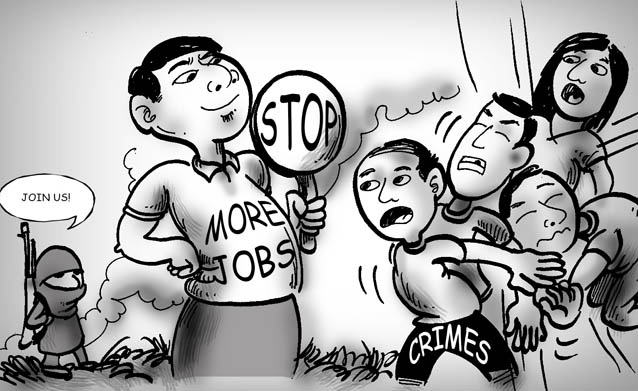
[av_one_full first min_height=” vertical_alignment=” space=” custom_margin=” margin=’0px’ padding=’0px’ border=” border_color=” radius=’0px’ background_color=” src=” background_position=’top left’ background_repeat=’no-repeat’ animation=”]
[av_heading heading=’EDITORIAL | We’re not alone’ tag=’h3′ style=’blockquote modern-quote’ size=” subheading_active=’subheading_below’ subheading_size=’15’ padding=’10’ color=” custom_font=”][/av_heading]
[av_textblock size=” font_color=’custom’ color=”]
Monday, March 27, 2017
[/av_textblock]
[av_image src=’http://www.panaynews.net/wp-content/uploads/2017/03/editorial-cartoon-for-march27.jpg’ attachment=’101201′ attachment_size=’full’ align=’center’ styling=” hover=” link=” target=” caption=” font_size=” appearance=” overlay_opacity=’0.4′ overlay_color=’#000000′ overlay_text_color=’#ffffff’ animation=’pop-up’][/av_image]
[av_textblock size=” font_color=” color=”]
THIS YEAR’S Earth Hour over the weekend was significant because the Philippines had just ratified the Paris agreement on climate change. Our participation in Earth Hour symbolized our commitment to change beyond the hour, especially since our country is considered as one of the nations most vulnerable to climate change impacts. It is important for us to join in international activities like Earth Hour because it concerns issues that are critical to our survival and development.
Every Earth Hour, Filipinos switch off non-essential lights between 8:30 p.m. and 9:30 p.m. This international campaign encouraging people and businesses to turn off lights and other electric appliances is in support of the global call for action on climate change to reduce carbon footprint.
The Philippines has been an active participant of Earth Hour since 2009 and is consistently one of the biggest advocates of what has been dubbed as the world’s largest grassroots movement for the environment. The World Wildlife Fund said the Philippines saved some 611 megawatts per hour of electricity when it first joined the campaign eight years ago, which is equivalent to shutting down one dozen coal-fired power plants.
The Paris deal, meanwhile, laid down the foundation for countries to work together in trying to limit the global temperature below 1.5 degrees Celcius, well below the level of 2 degrees Celcius that is likely to signal the worst effects of climate change. The agreement also requires developed nations to continue to provide funding to help less developed countries cut their carbon emissions and adapt to the challenges posed by the changing climate. The carbon emission reductions will be taken from the energy, transport, waste, forestry and industry sectors — the major sources of greenhouse gases.
The Paris accord an important milestone for countries that are most vulnerable to climate change impacts like the Philippines. It means we are not alone in dealing with climate change because all nations, developed and less developed alike, bear the responsibility of helping poorer countries alleviate suffering caused by the single biggest environmental and humanitarian crisis of our time.
[/av_textblock]
[/av_one_full]







